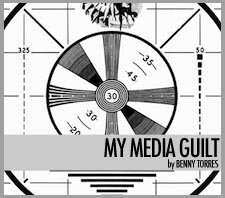I’m So Busy (Being Inefficient)
Posted by Anisha Ahluwalia | October 18, 2012
In advertising, like many other industries, time spent is the primary currency we use to log, bill and measure our work. More hours is often equated with more committed employees, better results and more money from clients.
Our work hours typically fall in three buckets:
+Quality time includes productive actions that drive outputs, increase subject matter expertise, boost morale, and aid team building. Quality time can also include bathroom breaks, assuming a bidet is not involved.
+Wasted time to a limited degree is a necessary evil, and takes place in the form of digital errands, general lollygagging or soft porn, if you must.
+Dead time includes unfocused, misguided and roundabout work that derails us from the heart of the task.
A recent New York Times article remarked that “a measurement system based on hours makes no sense for knowledge workers. Their contribution should be measured by the value they create through applying their ideas and skills.”
The inherent problem is that an hours system rewards wasted and dead time versus rooting our actions in quality time. It means we work more because we should. There is no pressure to learn how to better prioritize and focus our efforts nor to guide employees to do the same.
Many of the actions we equate with efficiency can often be the biggest symbols of dead time. Reflections from the aforementioned NYT piece indicate that 80% of all emails (internal or external) do not require a response. A personal tally from the past week puts this number closer to 50%. Regardless, we fire off emails, contribute to poorly structured meetings that drag on unnecessarily, do research for the sake of doing research- all while reveling in how busy we are.

We realistically can’t completely do away with using hours as a currency. However, to reorient us, the punch card can be more directly rooted in results- the tangible thinking created and progress we make each hour, each day and each week. There’s no reason employees who demonstrate more substantial progress during a 37-hour week shouldn’t be rewarded and viewed as more committed then those who deliver the same for a 52-hour week. This provides greater incentive for us to continue to improve and more effectively create meaningful work.
And ultimately leads to the most refreshing result of all: we all end up being a little less busy. How dare we?
Leave a Comment
RSS feed for comments on this post · TrackBack URI


